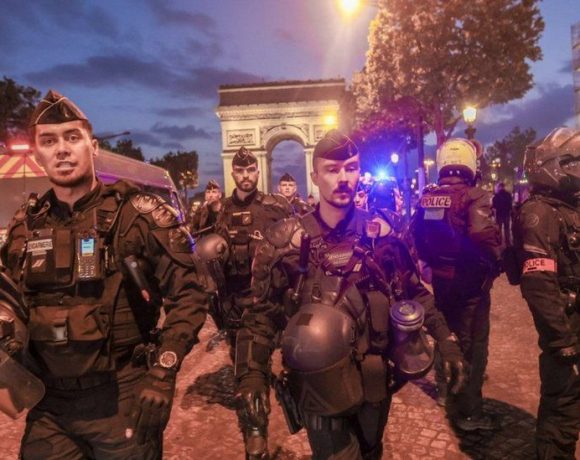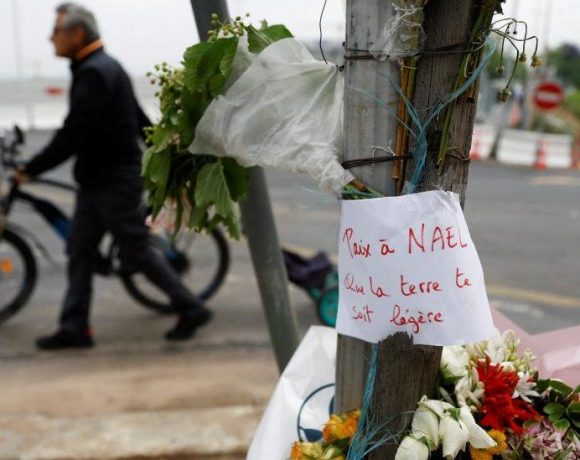
The death of a teenager shot by police at close range in France has sparked protests and unrest in various cities. However, the Interior Minister has reported a quieter night of protests with fewer arrests compared to previous nights.
The most intense clashes occurred in the southern city of Marseille. In a Paris suburb, attackers targeted the mayor’s house, injuring his wife as she attempted to flee with their children. The funeral for the teenager, Nahel M, was held with large crowds in attendance. The Interior Minister commended law enforcement for their actions, which contributed to a relatively calmer night. Around 45,000 police officers were deployed across the country for a second consecutive night.
The hope is that the security crackdown and the public’s disapproval of the violence will lead to a turning point and a decline in rioting. However, it is yet to be confirmed if this trend will continue. Clashes between police and rioters were reported in Marseille, with tear gas being used by the police. In Paris, a significant police presence deterred protesters from gathering on the Champs-Élysées.
The mayor of L’Haÿ-les-Roses denounced the attack on his home as a “murder attempt of unspeakable cowardice.” In other cities such as Lille, Lyon, Nice, and Strasbourg, clashes and vehicle fires were reported. The incident involving Nahel has reignited discussions about French policing, including a controversial firearms law from 2017 that allows officers to shoot at drivers who refuse to stop.
The issue of racism within the police force has also been raised, with the UN’s human rights office urging France to address this concern. President Emmanuel Macron strongly condemned the violence and criticized the exploitation of Nahel’s death to justify acts of violence.
Picture Courtesy: Google/images are subject to copyright

